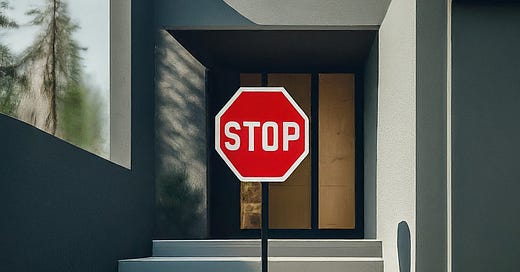THE DARK SIDE OF DEEDS OF RESTRICTIONS
How Property Developers Misuse and Abuse Them in the Philippines
Deeds of restrictions are contractual agreements embedded within property titles that stipulate the allowable and prohibited uses for a particular lot or entire subdivision. In theory, they're meant to protect property values, maintain homogeneity, and enhance the overall quality of life within a development. However, in the Philippines, deeds of restrictions have become a tool that some property developers exploit to the detriment of homeowners.
Here's a deeper dive into the common misuses and abuses of deeds of restrictions in the country:
1. Overly Restrictive and Ambiguous Provisions
Problem:
Some deeds of restrictions are written with language that is either exceedingly broad or unclear, leaving room for subjective interpretation by developers or homeowners' associations (HOAs). This can lead to overly strict rules that stifle homeowners' freedoms and rights to use and enjoy their properties.
Examples:
· Vague bans on "unsightly" structures or renovations without explicit definitions.
· Restrictions on pet ownership that don't clearly specify types or numbers of pets allowed.
· Arbitrary parking regulations that go beyond reasonable safety and aesthetic concerns.
2. Selective Enforcement and Favoritism
Problem:
In some subdivisions, developers or HOAs enforce deeds of restrictions unevenly. They might turn a blind eye to violations by influential homeowners or friends of board members while ruthlessly cracking down on minor infractions by others.
Examples:
· Large, unsightly structures built by "connected" individuals are left untouched, while smaller modifications from regular homeowners trigger warnings.
· Selective penalties for noise violations, parking offenses, or landscaping rules.
3. Exorbitant Fees and Penalties
Problem:
Certain deeds of restrictions grant developers or HOAs the power to impose excessive fines and penalties for even minor violations. These fees can become so burdensome that they create financial hardship for homeowners and may even be used as a form of harassment.
Examples:
· Disproportionate fines for landscaping infractions, minor maintenance issues, or rule violations based on subjective assessments.
· Accumulation of late fees and interest that homeowners struggle to pay off.
4. Restriction of Home-Based Businesses
Problem:
Many deeds of restrictions outright prohibit any commercial activity within the subdivision. This stifles economic opportunities for homeowners, especially in an era where work-from-home scenarios and small online businesses are on the rise.
Example:
Homeowners may be forbidden from running small businesses like tutoring services, home-based bakeries, or online retail operations, even if they don't disrupt the neighborhood's tranquility.
5. Hindrance to Necessary Renovations and Upgrades
Problem:
Some restrictive deeds make it extremely difficult or expensive for homeowners to undertake essential renovations, repairs, or upgrades that enhance property value or safety.
Example: Homeowners may need to go through a lengthy and arduous approval process from the HOA for basic home maintenance, accessibility modifications for those with disabilities, or energy-efficient renovations.
It's vital for potential homeowners to carefully scrutinize the deed of restrictions before purchasing property in a Philippine subdivision. Seek legal advice if necessary to understand your freedoms and limitations to avoid disputes and protect your investment. (The Filipino Homeowner)
Sources and Citations:
1) Housing and Land Use Regulatory Board (HLURB): The HLURB is the Philippine government agency responsible for regulating subdivisions and condominiums. Their website has information on developers' obligations, including upholding legal standards.
2) Philippine Daily Inquirer: News articles highlighting cases of restrictive deeds of restrictions: "[Can homeowners associations do whatever they want?]"
3) Supreme Court Decisions: Search for court decisions related to restrictive covenants and homeowners' rights within subdivisions.





can we not sign a deed of restriction?